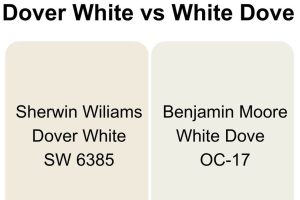When it comes to determining the value of a property, there are several methods available, including Zestimates and bank appraisals. Zillow’s Zestimate is a popular automated valuation model (AVM) that provides estimates of a property’s value based on algorithms and available data. On the other hand, a bank appraisal is conducted by a licensed appraiser who evaluates various factors to determine the property’s worth.
Let’s take a closer look at the differences between Zestimates and bank appraisals to understand which one provides more accurate values for properties.
Key Takeaways:
- Zestimates are automated value estimates provided by Zillow based on algorithms and available data.
- Bank appraisals are conducted by licensed appraisers who evaluate various factors to determine a property’s value.
- Zestimates may not always have enough data to provide accurate estimates.
- Bank appraisals take into account more detailed factors, such as property condition and recent comparable sales.
- It is recommended to supplement a Zestimate with other research, such as a professional appraisal, when making real estate decisions.
How accurate is a Zestimate – according to Zillow?
Zillow, the popular online real estate marketplace, acknowledges that the accuracy of a Zestimate can vary depending on the location and the availability of data. While Zestimates aim to provide an estimate of a property’s value, it is important to understand their limitations and consider other factors when making real estate decisions.
According to Zillow’s own data, approximately 67% of the time, a Zestimate does not have enough data to provide an accurate estimate. This means that there can be discrepancies between the Zestimate and the actual appraised value of a property. It is crucial to recognize that a Zestimate is not a substitute for a professional appraisal and should be viewed as a starting point rather than a definitive value.
Areas with more detailed information, such as square footage and the number of bedrooms or bathrooms, tend to have more accurate Zestimate values. However, even in these cases, it is essential to gather additional information and consult with real estate professionals to ensure the accuracy of the estimated value.
By keeping in mind the limitations of a Zestimate, individuals can make more informed decisions when buying or selling a property. Supplementing a Zestimate with a professional appraisal or consulting with a real estate agent who can provide a comparative market analysis (CMA) can offer a more comprehensive understanding of a property’s value.

“While a Zestimate can give you an idea of a property’s value, it’s essential to understand its limitations and not solely rely on it when making real estate decisions.”
Appraisals vs. Zestimates: A comparison
When it comes to property valuation, comparing appraisals and Zestimates can provide valuable insights. A sampling of recently appraised homes in Chicago revealed distinct differences between the two methods of property assessment. In fact, it was found that 67% of the time, Zillow’s Zestimate did not have enough data to provide an accurate estimate. This highlights one of the limitations of Zestimates, which is the inability to consider important factors such as property condition, upgrades, niche areas, and market value beyond distressed sales.
On the other hand, a professional appraisal takes all these factors into account, offering a more comprehensive assessment of a property’s value. Licensed appraisers have the expertise to consider the intricacies of a property, including its condition, size, features, and recent comparable sales. By conducting an on-site evaluation and analyzing relevant data, appraisers provide a more accurate picture of a property’s worth.
“While Zestimates can give you a rough idea of a property’s value, they should not be relied upon as the sole basis for making real estate decisions.”
By understanding the differences between Zestimates and professional appraisals, individuals can better gauge the accuracy and reliability of property estimates. The limitations of Zestimates make them less reliable in capturing the true value of a property, especially in unique or niche markets. In contrast, appraisals factor in various aspects of a property and the local market in order to provide a more objective and accurate assessment.
A Closer Look: Sample Data Comparisons
To illustrate the variations between Zestimates and appraisals, let’s consider a few examples:
| Property | Zestimate | Appraisal | Difference |
|---|---|---|---|
| 123 Main St | $500,000 | $550,000 | $50,000 |
| 456 Elm St | $350,000 | $300,000 | -$50,000 |
| 789 Oak Ave | $400,000 | $425,000 | $25,000 |
In the above examples, we can see that the Zestimate and the appraised value of each property can differ by a significant amount. These discrepancies highlight the importance of obtaining a professional appraisal for a more accurate understanding of a property’s value.

When it comes to property valuation, it’s essential to consider the limitations of Zestimates and their potential inaccuracies. Relying solely on a Zestimate may not provide an accurate representation of a property’s true value. To make informed decisions in the real estate market, consulting a professional appraiser is highly recommended. Their expertise and attention to detail can provide a more accurate assessment, ensuring that buyers, sellers, and investors have a comprehensive understanding of a property’s worth.
Understanding different property valuations
In addition to Zestimates and bank appraisals, there are other types of property valuations that play a role in real estate transactions.
Market value represents the price agreed upon by a willing buyer and seller in an open market. It takes into account factors such as location, condition, and current market trends.
Tax appraisal value, on the other hand, is used for property tax assessments and is determined by local taxing authorities. It may not always align with market or appraised values as its primary purpose is revenue generation.
Understanding these distinctions can help buyers and sellers make informed decisions and set realistic expectations.

| Property Valuation Type | Description |
|---|---|
| Market Value | The price agreed upon by a willing buyer and seller in an open market. Factors such as location, condition, and current market trends are considered. |
| Tax Appraisal Value | Used for property tax assessments and determined by local taxing authorities. It may not always align with market or appraised values as its primary purpose is revenue generation. |
Conclusion
When it comes to property valuation, Zestimates can provide a general idea of a property’s value, but they should not be relied upon as the sole determinant. Bank appraisals, on the other hand, offer a more accurate and detailed evaluation by taking into account various factors that can influence a property’s worth.
To ensure well-informed decisions in the real estate market, it is highly recommended to consult with a local real estate professional who can provide personalized guidance and a comprehensive understanding of the market. By understanding the differences between Zestimates and bank appraisals, both buyers and sellers can navigate the property valuation process with more confidence.
Remember, Zestimates are based on algorithms and available data, and their accuracy can vary depending on the location and availability of information. Bank appraisals, conducted by licensed appraisers, consider additional factors such as property condition and recent comparable sales to provide a more comprehensive assessment.
While Zestimates can serve as a starting point, consulting with a real estate professional and obtaining a bank appraisal will ensure a more accurate understanding of a property’s value. Don’t solely rely on automated estimates; seek expert advice for a more thorough property valuation.
FAQ
What is a Zestimate?
A Zestimate is an automated valuation model (AVM) provided by Zillow that estimates the value of a property based on algorithms and available data.
How accurate is a Zestimate?
Zillow acknowledges that a Zestimate’s accuracy depends on the location and availability of data. In about 67% of cases, a Zestimate does not have enough data to provide an accurate estimate.
What is a bank appraisal?
A bank appraisal is a property valuation conducted by a licensed appraiser who evaluates various factors, including condition, size, features, and recent comparable sales, to determine the property’s worth.
How does a bank appraisal differ from a Zestimate?
While both aim to estimate a property’s value, a bank appraisal is conducted by a licensed appraiser and takes into account various factors that can influence a property’s worth. A Zestimate is an automated estimation based on algorithms and available data.
Are Zestimates and bank appraisals always aligned?
No, there can be discrepancies between Zestimates and bank appraisals due to variations in data availability and factors considered in the valuation process. It is important to consider the limitations of a Zestimate and not solely rely on it when making real estate decisions.
Are there other types of property valuations?
Yes, there are other types of property valuations. Market value represents the price agreed upon by a willing buyer and seller in an open market. Tax appraisal value is used for property tax assessments and may not always align with market or appraised values.
How can I make well-informed real estate decisions?
To make well-informed decisions, it is advisable to consult with a local real estate professional who understands the nuances of the market. They can provide personalized guidance and help navigate the property valuation process.



